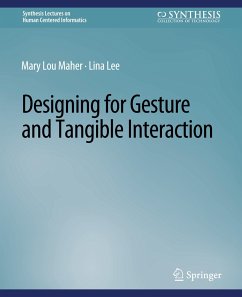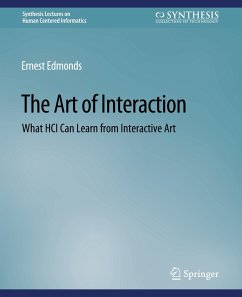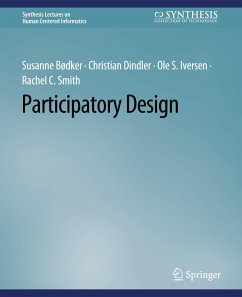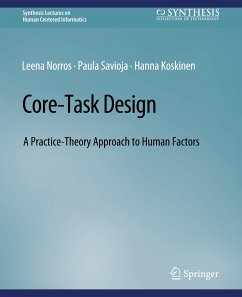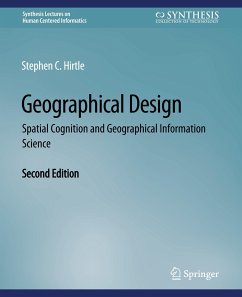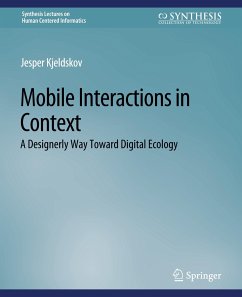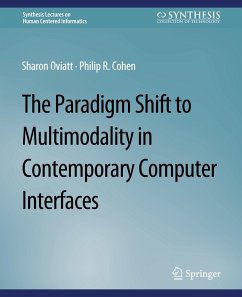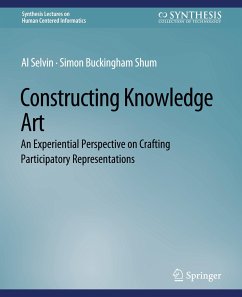
Adaptive Interaction
A Utility Maximization Approach to Understanding Human Interaction with Technology

PAYBACK Punkte
0 °P sammeln!
This lecture describes a theoretical framework for the behavioural sciences that holds high promise for theory-driven research and design in Human-Computer Interaction. The framework is designed to tackle the adaptive, ecological, and bounded nature of human behaviour. It is designed to help scientists and practitioners reason about why people choose to behave as they do and to explain which strategies people choose in response to utility, ecology, and cognitive information processing mechanisms. A key idea is that people choose strategies so as to maximise utility given constraints. The frame...
This lecture describes a theoretical framework for the behavioural sciences that holds high promise for theory-driven research and design in Human-Computer Interaction. The framework is designed to tackle the adaptive, ecological, and bounded nature of human behaviour. It is designed to help scientists and practitioners reason about why people choose to behave as they do and to explain which strategies people choose in response to utility, ecology, and cognitive information processing mechanisms. A key idea is that people choose strategies so as to maximise utility given constraints. The framework is illustrated with a number of examples including pointing, multitasking, skim-reading, online purchasing, Signal Detection Theory and diagnosis, and the influence of reputation on purchasing decisions. Importantly, these examples span from perceptual/motor coordination, through cognition to social interaction. Finally, the lecture discusses the challenging idea that people seek to find optimal strategies and also discusses the implications for behavioral investigation in HCI.



